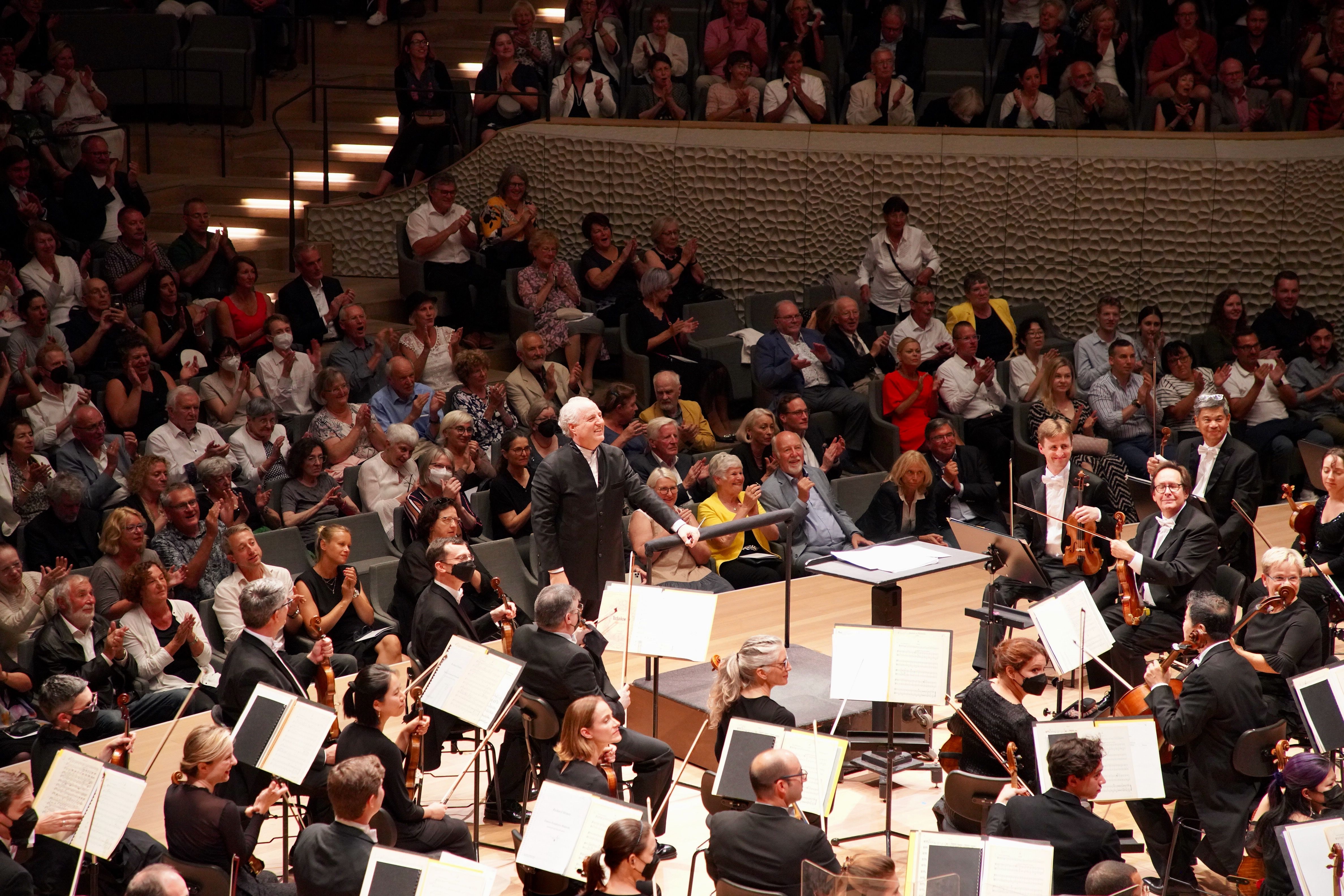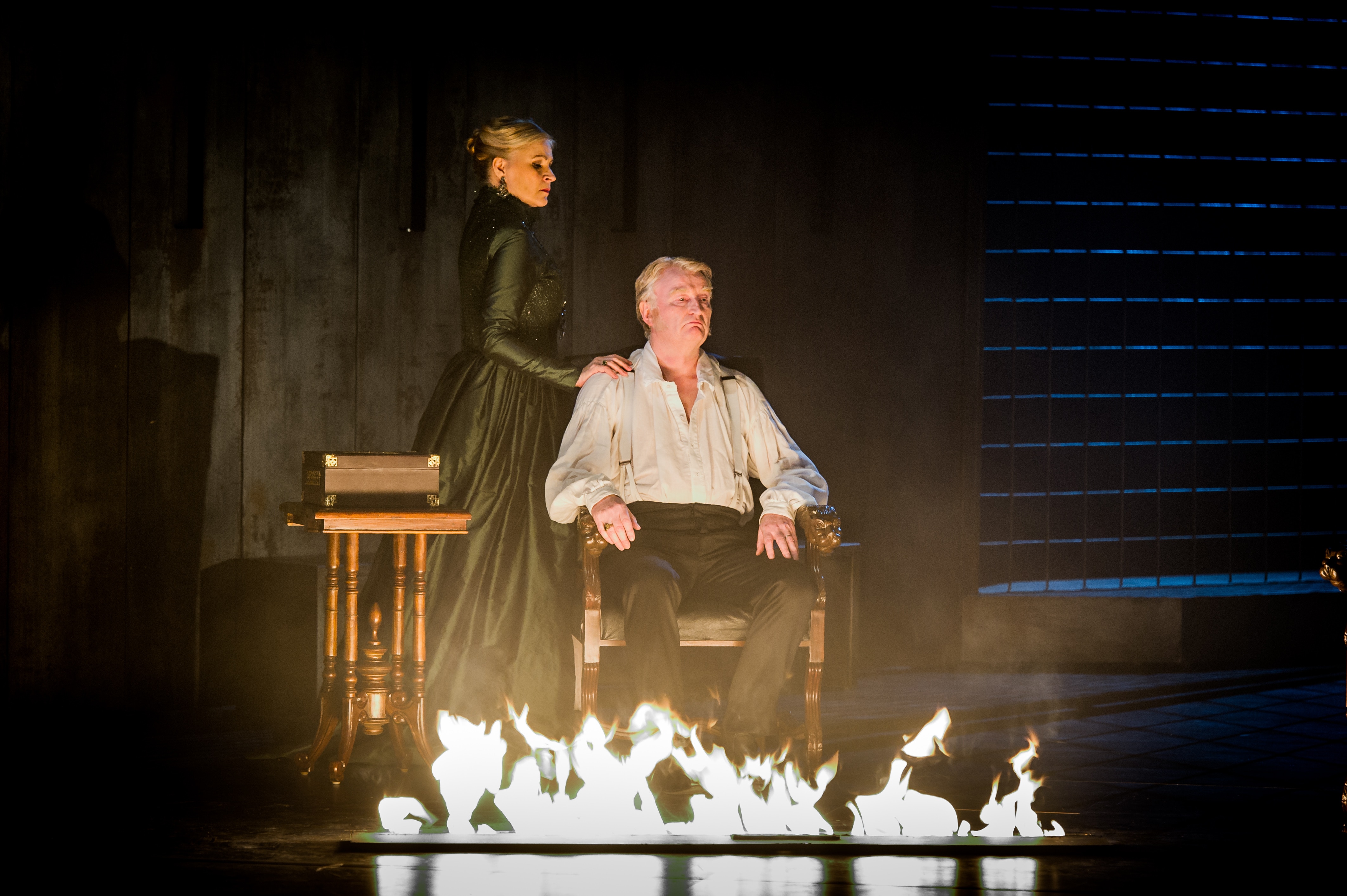Pittsburgh rearranges music that Germans think they know
NewsThe Pittsburgh Symphony played its second concert at Hamburg’s Elbphilharmonie last night.
Shirley Apthorp reviews once again for slippedisc.com, the first and only non-German review:
Richard Strauss wrote an orchestral suite from his opera Der Rosenkavalier, but he didn’t write one for Elektra. Manfred Honeck and Czech composer Tomas Ille have done that for him. We heard Honeck’s Pittsburgh Symphony Orchestra play it on the stage of Hamburg’s Elbphilharmonie on Thursday.
Perhaps Strauss felt that the violence and the icky bits of Elektra were unsuitable for the concert stage; Honeck and Ille have no such scruples. On paper, you might think it would be like reading the Wikipedia plot summary of a film – all the salient points, none of the screaming, and over much sooner than the real thing.
In fact, it feels more like the synopsis of John Cage’s Europeras, cobbled together according to random principles: “On a public bench he falls in love; however, her father, an evil magician, died giving birth to him. He is in fact his son, her delight…”
You listen, and think, ah yes, here we remember Agamemnon, there’s Elektra scrabbling for her hatchet, now Oreste has arrived – but doesn’t the hatchet bit come after Oreste’s arrival? Honeck and Ille’s arrangement does not follow a strict narrative line. Perhaps – probably – that is not the point. The point is to hear Strauss’s stupendous, violent, tender music in a pure form – and the Pittsburg players manage its myriad challenges with such aplomb that you’re left wishing it could have been a bit dirtier.
Go and see the opera anyhow – the suite is its own entity, a concert piece, and in no way a substitute for the real thing. Think of it as the extra tone poem that Strauss never wrote.
One of the refreshing aspects of the Pittsburgh orchestra’s European tour is the meaty programming. Thursday’s concert opened with another Honeck/ Ille arrangement, this time of Erwin Schulhoff’s Five Pieces for String Quartet, composed in 1923, long before the Nazis rose to power and sent him to die in a German prison.
While the Elektra suite can be seen as a reduction, this Schulhoff orchestration is undoubtedly an augmentation, a brilliant act of dramatic orchestration, realised with such flair and dexterity that it sounds as if the work was born as a tour-de-force for full orchestra.
To balance all this ferocity, the orchestra is joined by Gautier Capucon for a meltingly sweet account of Dvorak’s cello concerto. Capucon plays with frightening perfection; there is not a hint of a slip anywhere. And Honeck supports him with extraordinary attention to detail; every minuscule change of tempo, turn of phrase, or inflection is caught and mirrored. It is so symbiotic that it sounds as if orchestra and soloist had been playing together every day for years; it is almost creepy.
Honeck’s arrangements with Ille have clearly been written with the Pittsburgh orchestra’s strengths in mind; Capucon and Honeck make you believe that Dvorak wrote his concerto for them.
Too glib for you? Go and help the double basses grub in the dirt for Elektra’s hatchet. This was truly a programme for all tastes.
+++
photo: Julie Goetz






Shirley really is a good critic.
And an entertaining one. Hard to forget the image of Electra scrabbling for the hatchet. Oh to have her in NY
I firmly second Manuela here!
A very well written and erudite review.
Pittsburgh has a tradition of playing
Richard Strauss going back to 1904
when Strauss himself conducted “Till
Eulenspiegel ” and ” Death and
Transfiguration ” (among other works )
with the orchestra at Pittsburgh’s
Carnegie Music Hall on March 11th
and 12th and at West Virginia
University’s Commencement Hall on
March 13th , 1904 .
But what do the local, German, critics think?
(Isn’t THAT the whole point of touring?)
Is “frightening perfection” really a consideration when making music? I always felt like when reviewers mentioned that, it was because they had nothing else to say about a musician’s interpretation.
MH conducted his Elektra suite with the Israel Philarmonic some years ago. It was superficial and violent and felt entirely inappropriate.
Richard Strauss had nothing to do with arranging the Rosenkavalier suites, other than composing the original opera. Polish-American conductor Artur Rodzinski arranged them for the New York Philharmonic in 1944.
Honeck and his Pittsburgh orchestra recorded the Strauss Elektra and Rosenkavalier suites for Reference Recordings almost six years ago. A wonderful recording!